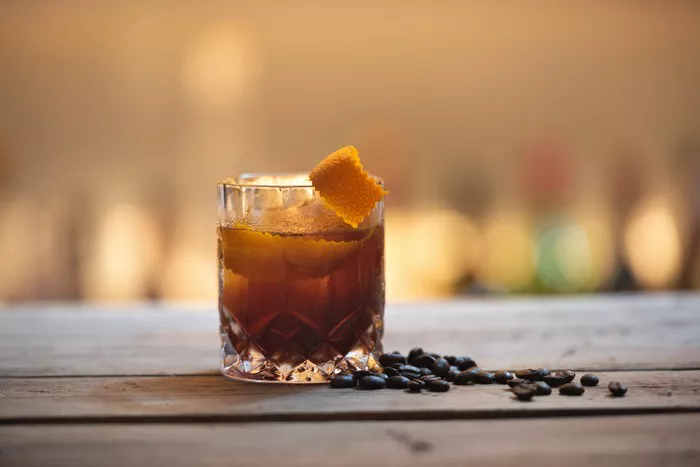Tequila, the renowned Mexican spirit, is a cherished alcoholic beverage with a rich history and cultural significance. Its distinctive taste and cultural prominence have made it a global favorite among spirits enthusiasts. From its origins in the agave plant to the intricate production processes, understanding what tequila truly embodies involves delving into its historical roots, the distinctive types, and its growing popularity worldwide.
The Origins of Tequila: From Agave to Distillation
At the heart of understanding what tequila is lies the blue agave plant, a spiky succulent primarily grown in the Jalisco region of Mexico. Tequila’s story begins centuries ago when indigenous tribes such as the Aztecs discovered the fermentable nectar of the agave, called “pulque.” This ancient beverage served as the foundation for the evolution of tequila.
The transformation from pulque to tequila began when Spanish conquistadors brought the technique of distillation to Mexico in the 16th century. The native people distilled pulque, resulting in a stronger, more potent spirit, which eventually evolved into what we know today as tequila.
Understanding Tequila Types: From Blanco to Extra Añejo
Tequila comes in various types, each distinct in flavor, aging process, and complexity. The main classifications are Blanco (also known as Silver or Plata), Reposado, Añejo, and Extra Añejo. These categories are based on the aging period in oak barrels, influencing the spirit’s taste profile and character.
Blanco tequila is typically unaged or aged for a short period, offering a pure agave flavor with herbal and citrus notes. Reposado, meaning “rested” in Spanish, undergoes aging in oak barrels for at least two months but no more than a year, resulting in a smoother taste with hints of oak. Añejo tequila is aged for one to three years, delivering a more complex flavor profile with deeper oak, vanilla, and caramel notes. Lastly, Extra Añejo, a relatively newer classification introduced in 2006, is aged for a minimum of three years, exhibiting rich, luxurious flavors and a darker hue.
Production Process: From Harvesting Agave to Bottling
The process of making tequila is a meticulous art that involves several steps, each crucial in crafting its distinctive taste. It all starts with the blue agave plant, harvested when it reaches maturity, typically between 7 to 10 years old. The hearts of the agave, known as piñas, are extracted, roasted, and crushed to extract their juices.
The extracted juice undergoes fermentation, where natural yeast or cultivated strains convert the sugars into alcohol. This fermented liquid then enters the distillation process, which involves heating the liquid to separate alcohol from impurities, resulting in a high-proof spirit. The distilled tequila is then either bottled as Blanco or moved to oak barrels for aging, depending on the desired type.
Aging is a critical phase in tequila production, where the spirit interacts with the wood, absorbing its flavors and characteristics. The duration and type of barrels used significantly impact the final product’s taste, color, and aroma. Once aged to perfection, the tequila is carefully monitored, tested, and finally bottled for distribution.
Tequila’s Global Impact: Rising Popularity and Cultural Significance
Tequila has transcended its Mexican origins to become a globally recognized and celebrated spirit. Its popularity surged as mixologists began experimenting with innovative cocktails, showcasing tequila’s versatility beyond traditional margaritas. Additionally, growing consumer interest in premium and craft spirits has elevated the demand for high-quality tequila.
The cultural significance of tequila extends beyond its consumption. It has become emblematic of Mexican culture, with festivals and events dedicated to celebrating its heritage. From the agave fields to the distilleries, the production of tequila serves as a source of employment for many Mexicans, further reinforcing its cultural and economic importance.
Appreciating Tequila: Tasting and Pairing Notes
Appreciating tequila involves more than just drinking; it involves a sensory experience that engages the palate and senses. When tasting tequila, it’s essential to observe its appearance, noting its color and clarity. Swirling the liquid releases its aromas, allowing one to detect the nuances of agave, oak, and other underlying notes.
Upon sipping, the taste of tequila can be dissected into different flavor profiles, ranging from herbal and earthy to sweet and spicy, depending on the aging process and quality. Pairing tequila with appropriate foods can elevate the tasting experience. Blanco tequilas complement seafood and citrus-based dishes, while aged variants like Reposado and Añejo are superb when paired with grilled meats, chocolate, or aged cheeses.
The Future of Tequila: Innovation and Sustainability
As the global demand for tequila continues to grow, the industry faces challenges related to sustainability and innovation. The cultivation of blue agave requires several years to mature, leading to concerns about overharvesting and environmental impact. To address this, many tequila producers are implementing sustainable practices, such as replanting agave and adopting eco-friendly production methods.Furthermore, the industry is witnessing innovation in flavor profiles and production techniques. Some distilleries experiment with different barrel types or aging methods to create unique expressions of tequila, appealing to a more diverse consumer base.
Conclusion
In conclusion, understanding what tequila truly is encompasses its historical roots, production process, diverse types, cultural significance, and global impact. From its humble origins in the agave plant to its evolution into a cherished and internationally recognized spirit, tequila continues to captivate enthusiasts worldwide. As the industry evolves, embracing sustainability and innovation, the legacy of tequila as Mexico’s iconic spirit remains unwavering, ensuring its place in the world of fine spirits for generations to come.


